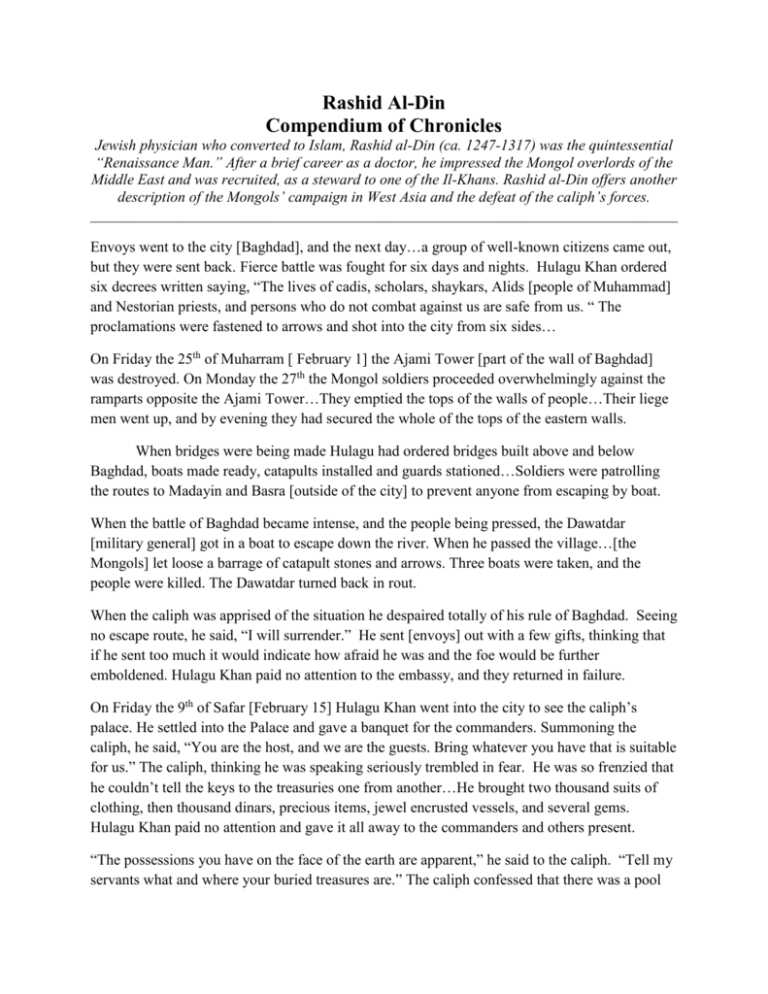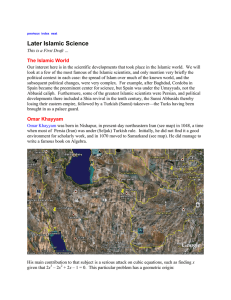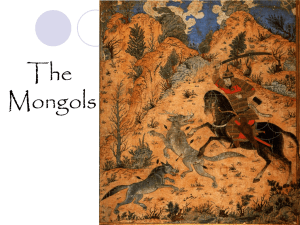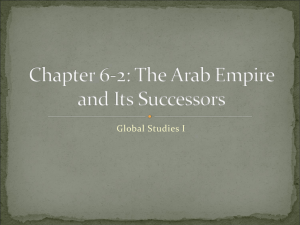Rashid Al-Din, Compendium of Chronicles
advertisement

Rashid Al-Din Compendium of Chronicles Jewish physician who converted to Islam, Rashid al-Din (ca. 1247-1317) was the quintessential “Renaissance Man.” After a brief career as a doctor, he impressed the Mongol overlords of the Middle East and was recruited, as a steward to one of the Il-Khans. Rashid al-Din offers another description of the Mongols’ campaign in West Asia and the defeat of the caliph’s forces. ______________________________________________________________________________ Envoys went to the city [Baghdad], and the next day…a group of well-known citizens came out, but they were sent back. Fierce battle was fought for six days and nights. Hulagu Khan ordered six decrees written saying, “The lives of cadis, scholars, shaykars, Alids [people of Muhammad] and Nestorian priests, and persons who do not combat against us are safe from us. “ The proclamations were fastened to arrows and shot into the city from six sides… On Friday the 25th of Muharram [ February 1] the Ajami Tower [part of the wall of Baghdad] was destroyed. On Monday the 27th the Mongol soldiers proceeded overwhelmingly against the ramparts opposite the Ajami Tower…They emptied the tops of the walls of people…Their liege men went up, and by evening they had secured the whole of the tops of the eastern walls. When bridges were being made Hulagu had ordered bridges built above and below Baghdad, boats made ready, catapults installed and guards stationed…Soldiers were patrolling the routes to Madayin and Basra [outside of the city] to prevent anyone from escaping by boat. When the battle of Baghdad became intense, and the people being pressed, the Dawatdar [military general] got in a boat to escape down the river. When he passed the village…[the Mongols] let loose a barrage of catapult stones and arrows. Three boats were taken, and the people were killed. The Dawatdar turned back in rout. When the caliph was apprised of the situation he despaired totally of his rule of Baghdad. Seeing no escape route, he said, “I will surrender.” He sent [envoys] out with a few gifts, thinking that if he sent too much it would indicate how afraid he was and the foe would be further emboldened. Hulagu Khan paid no attention to the embassy, and they returned in failure. On Friday the 9th of Safar [February 15] Hulagu Khan went into the city to see the caliph’s palace. He settled into the Palace and gave a banquet for the commanders. Summoning the caliph, he said, “You are the host, and we are the guests. Bring whatever you have that is suitable for us.” The caliph, thinking he was speaking seriously trembled in fear. He was so frenzied that he couldn’t tell the keys to the treasuries one from another…He brought two thousand suits of clothing, then thousand dinars, precious items, jewel encrusted vessels, and several gems. Hulagu Khan paid no attention and gave it all away to the commanders and others present. “The possessions you have on the face of the earth are apparent,” he said to the caliph. “Tell my servants what and where your buried treasures are.” The caliph confessed that there was a pool full of gold in the middle of the palace. They dug it up, and it was full of gold. An order was given for the caliph’s harem1 to be counted. There were seven hundred women and concubines and a thousand servants. When the caliph was apprised of the count of the harem, he begged and pleased, saying, “Let me have the women of the harem, upon whom neither the sun nor the moon has ever shone.” “Of these seven hundred, choose a hundred,” he was told, “and leave the rest.” The caliph selected a hundred women from among his favorites and close relatives and took them away. Source: Rossabi, Morris. The Mongols and Global History: A Norton Documents Reader. New York: W.W. Norton, 2011. Print. 1 the separate part of a Muslim household reserved for wives, concubines, and female servants











